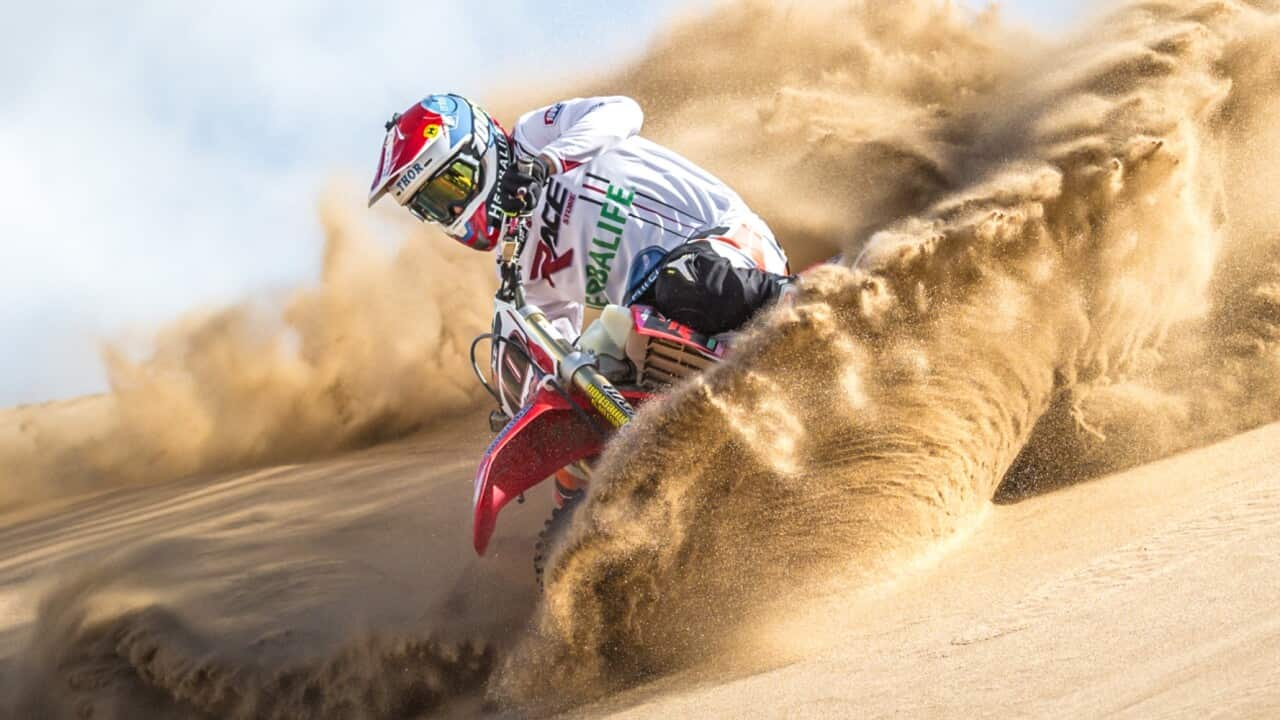Starting from Noirmoutier-en-l’Île in the Vendee region from 7 - 23 July, the 105th Tour de France will cover just 3,329 kilometres, one of the shortest in modern times.
In good news for fans watching the race on SBS in Australia next year, just four stages are longer than 200 kilometres compared to the eight stages this year.
Bolder still, stage 17 is just 65 kilometres with a brand-new finish on the Col de Portet pass. And somewhat unique for the Tour de France, a tough 159km stage (stage 10) from Annecy to Le Grand-Bornand will feature a dirt, non tarmac track up the steep climb of the Plateau des Glières.
As rumoured, Alpe d'Huez is in (stage 12), as well as a 154km trip to Roubaix on stage 9, including 21 kilometres over cobbles.
"It's going to be a nervous race," Chris Froome said, particularly of the first week in notoriously windy north-west France and the cobble stage.
"The Alpe d'Huez stage will be the Queen stage. It's going to be a very big challenge. I don't know if it's a Tour that suits me, I just know I'll have to adapt," the Kenyan-born Brit said.
"For me, it's like new territory!" Froome also said of the stage 17, 65 kilometre stage. "It will be attacking from the first kilometres between the favourites, it will be one of the keys of this Tour de France."
2017's third-place Romain Bardet was also eager to see how the short stage would play out and expects it to be decisive.
"Leaders will be quickly placed one against the other. This gives a lot of space. I expect a really crazy race that day! I would not be surprised if we recorded the biggest gaps in the Tour de France."
Nairo Quintana was reported to comment after the route was unveiled, he would be the main leader for Movistar at next year's Tour despite Mikel Landa's move to the team, and it was a course that suited him.
It may be a shorter route, but it won't be without its struggles:
Races against the clock are light on with a 35 kilometre team time trial on stage 3, and a 31 kilometre individual time trial before the procession to Paris.
The team time trial could prove even more interesting with a rider reduction to eight riders per team slated for 2018 while the individual time trial is a hilly affair on the penultimate day, possibly setting up a real duel between Chris Froome and time trial specialist Tom Dumoulin should the Dutchman be attracted to the Tour course and its relatively few time trial kilometres. Other highlights include a double climb of the Mûr de Bretagne (stage 6) and six mountain stages including three altitude finishes (La Rosiere, Alpe d'Huez, Col de Portet) and the stage 19, 200 km gruelling sojourn from Lourdes to Lauruns featuring the Col Aspin, Col du Tourmlaet and Col dAubisque.
Other highlights include a double climb of the Mûr de Bretagne (stage 6) and six mountain stages including three altitude finishes (La Rosiere, Alpe d'Huez, Col de Portet) and the stage 19, 200 km gruelling sojourn from Lourdes to Lauruns featuring the Col Aspin, Col du Tourmlaet and Col dAubisque.

The 2018 Tour de France course Source: ASO
"We especially wanted to emphasise stage variety and the routes that may be prove decisive," Tour de France director Christian Prudhomme said.
"Whilst combining legendary climbs with brand new ascensions or ultra-dynamic formats, to provide a vision of modern and inspired cycling."
La Course
In its fifth year, La Course is back to a one-day race, held on 17 July a few hours before the men's stage 10. It's a 'reworked' version of the men's stage that day: a 118 kilometre course with the same finish - featuring Col de Romme and the Col de la Colombiere passes before the downhill run to Grand-Bornand.
Vélo d’Or-Vélo Magazine 2017
Also announced at the Tour route unveiling was the 2017 Vélo Magazine Vélo d’Or trophy. The Vuelta-Tour de France double was enough to sway the 18 international journalists to Chris Froome, his closest rivals for the award, 2017 Giro d'Italia victor Tom Dumoulin and three time world champion Peter Sagan.
The 2018 Tour de France
The 2018 Tour de France will also feature nine new stage cities visited for the first time (denoted below in bold):
July 7 - Stage 1: Noirmoutier-en-l’Île - Fontenay-le-Comte, 189km
July 8 - Stage 2: Mouilleron-Saint-Germain - La Roche-sur-Yon, 183km
July 9 - Stage 3: Cholet - Cholet (Team time trial), 35km
July 10 - Stage 4: La Baule - Sarzeau, 192km
July 11 - Stage 5: Lorient - Quimper, 203km
July 12 - Stage 6: Brest - Mûr de Bretagne Guerlédan, 181km
July 13 - Stage 7: Fougères - Chartres, 231km
July 14 - Stage 8: Dreux - Amiens Métropole, 181km
July 15 - Stage 9: Arras Citadelle - Roubaix, 154km
July 16 - Rest day in Annecy
July 17 - Stage 10: Annecy - Le Grand-Bornand, 159km
July 18 - Stage 11: Albertville - La Rosière Espace San Bernardo, 108km
July 19 - Stage 12: Bourg-Saint-Maurice Les Arcs - Alpe d'Huez, 175km
July 20 - Stage 13: Bourg d'Oisans - Valence, 169km
July 21 - Stage 14: Saint-Paul-Trois-Chateaux - Mende, 187km
July 22 - Stage 15: Millau - Carcassone, 181km
July 23 - Rest day in Carcassone
July 24 - Stage 16: Carcassone - Bagnères-de-Luchon, 218km
July 25 - Stage 17: Bagnères-de-Luchon - Saint-Lary-Soulan (Col de Portet), 65km
July 26 - Stage 18: Trie-sur-Baïse - Pau, 172km
July 27 - Stage 19: Lourdes - Laruns, 200km
July 28 - Stage 20: Saint-Pée-sur-Nivelle - Espelette (individual time trial), 31km
July 29 - Stage 21: Houilles - Paris Champs-Elysees, 115km










